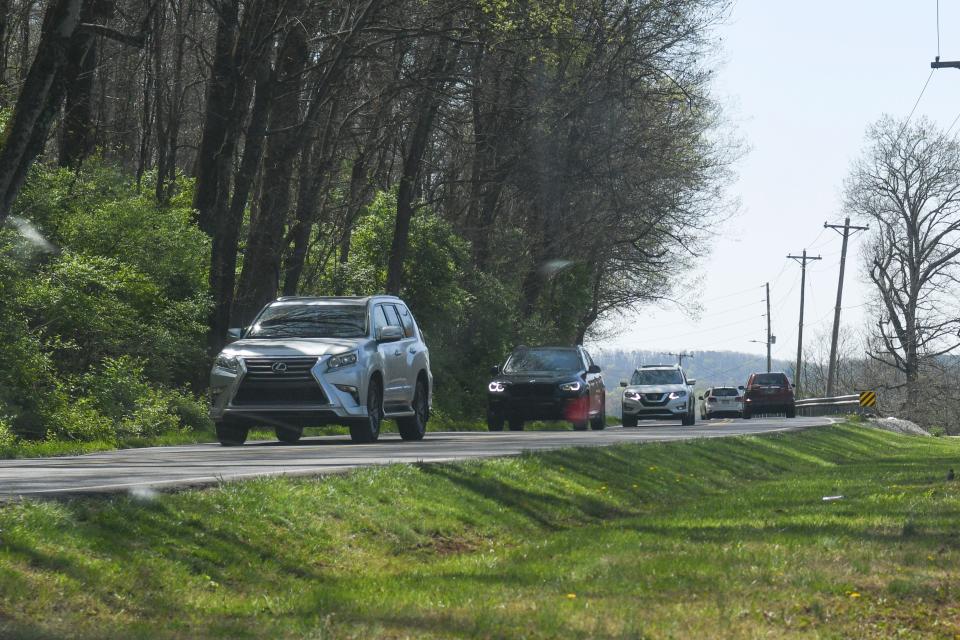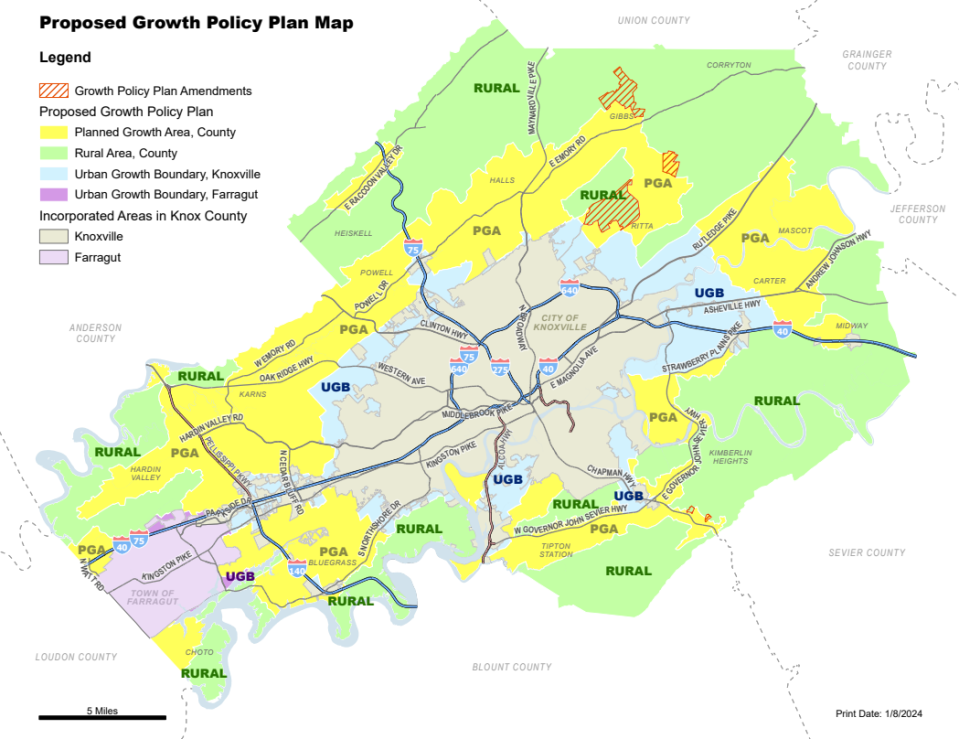If Knox County and Farragut can't mediate a deal over Advance Knox, a third party decides
A plan for mediation to resolve the dispute between Knox County and the town of Farragut over a new growth plan could end up being a relatively quick process.
If the county and town can't work with a state-appointed mediator to find common ground on the massive Advance Knox growth planning overhaul and three Farragut aldermen's objections, it will go to a state panel for a final decision.
On the line is Knox County's roap map for how to make business development less lopsided to the west, and how to condense development in certain areas to preserve farmland. Without an updated plan, the county will continue to grow as it is, with urban sprawl eating land and housing and business developments causing clogged roads.
The plan, which took more than two years and $1.2 million to make, would have taken effect in May.
The county will send a letter to the Tennessee secretary of state to declare an impasse after Farragut blocked Advance Knox, and to ask for the mediation process to start, Knox County Deputy Law Director Mike Moyers said. County leaders plan to sent the letter after Farragut's special meeting on April 3 when aldermen will detail their objections to the plan.

The secretary of state will appoint one to three administrative law judges to mediate the dispute.
How does the state mediation process work?

Once selected, the administrative judges will mediate a conversation between Knox County and Farragut to try to find a compromise on the growth policy. The City of Knoxville may be involved in the mediation process, too, but Moyers said that's up to the panel.
The growth plan requires the approval of the county, city and town, and the Knox County Commission and Knoxville City Council had approved the first part of Advance Knox before Farragut rejected it.
If the parties come to an agreement and make changes to the plan, it would have to be approved again by the Knox County Commission, the Knoxville City Council and the Farragut Board of Mayor and Aldermen.
There's not an average timeframe for the decisions, but they can wrap up in an afternoon or after a few days, explained Bill Terry, a Tennessee Advisory Commission on Intergovernmental Relations senior research consultant.
What happens if Knox County and Farragut don't agree?
If mediation doesn't result in an agreement, Moyers said the secretary of state will appoint a new panel to arbitrate.
The new panel could:
Side with Knox County and approve the growth plan as is.
Side with Farragut and deny the entire growth plan.
Create a solution in between.
Moyers said the panel's power isn't limited, and it can do "anything that can be imagined."
If it comes to arbitration, the panel's decision is binding and final.
Who pays for state mediation?
Everyone involved could pay, but who pays and how much is at the discretion of the mediation panel.
The entire cost could fall on one municipality if the Tennessee Secretary of State's office finds that an entity acted unreasonably or in bad faith.
What's at stake in Knox County in the meantime?
For now, Knox County will continue to approve businesses and homes using its current development rules, which many argue have led to haphazard growth.
It could end up costing the county a lot of money, and if a new plan isn't created, Knox County could end up with more urban sprawl, less affordable housing and more strain on already shaky infrastructure.
"If we cannot get to where we'd like to be, we'll see Hardin Valley (growth), probably, in east Knox County, which is what we're trying to avoid," Jacobs said during an April 1 press conference. "All those scenarios that we've been talking about for months, even years now, will take place for the negative."
Jacobs said the county could prioritize projects outside of Farragut because of the vote shooting down Advance Knox.
"Farragut is essentially saying to us now that they’re OK with the status quo, they like things the way they are," Jacobs said. "We do have other parts of the county that have some infrastructure needs that we’re just going to have to move up the list now because Farragut has basically taken the position that that’s what they want.”
FARRAGUT FALLOUT: Town derails plan Keep an eye on these Farragut projects and services if leaders 'reprioritize' dollars for town
Why did Knox County choose this route?
After Farragut rejected the growth plan, Jacobs could have reconvened the Growth Policy Coordinating Committee and redrawn the county's growth boundaries.
Jacobs has repeatedly said throughout the process he would not do that.
"The city's OK with (the plan), our commission's OK with this, it doesn't change anything in Farragut," Jacobs said during the press conference. "(If) we're gonna go back and essentially present the same thing, I don't see any point in doing that and going through that process."
Silas Sloan is the growth and development reporter. Email silas.sloan@knoxnews.com. X, formerly known as Twitter @silasloan. Instagram @knox.growth.
Support strong local journalism by subscribing at knoxnews.com/subscribe.
This article originally appeared on Knoxville News Sentinel: Knox County, Farragut head to state mediation over Advance Knox

